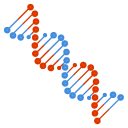Study References:
https://www.science.org/doi/10.1126/s…
https://ieeexplore.ieee.org/document/…
https://link.springer.com/chapter/10….
https://pubmed.ncbi.nlm.nih.gov/25229…
Key Takeaways for quick navigation: 00:14

Magnesium is emphasized as a crucial supplement for longevity, with specific focus on its role in cardiovascular health and DNA repair. 00:42

About 40% of the US population does not get enough magnesium, an essential mineral for health. 01:24

Magnesium aids in DNA repair, which is significant in aging and reducing damage, potentially leading to fewer tumors and lower mortality. 01:52

Highlighting the challenge of magnesium deficiency due to depleted soils and water sources, increasing the need for supplementation. 02:35

The urgency for magnesium supplementation is discussed, considering the increased need due to stress and heavy metal exposure. 03:45

Different forms of magnesium are introduced, each offering unique benefits and varying in absorption rates. 04:55

Magnesium malate is highlighted for its role in energy production and potential gut benefits. 06:45

️ Magnesium orotate is discussed for its cardiovascular health benefits and ability to drive ATP more effectively. 07:44

Magnesium threonate and bisglycinate are mentioned for improving sleep quality by crossing the blood-brain barrier. 08:29

Magnesium glycinate is noted for supporting antioxidant defense and calming effects, potentially improving sleep quality. 11:27

Magnesium taurate is linked to longevity benefits, particularly in cardiovascular health and lifespan extension. 16:05

Magnesium can be effectively absorbed through the skin, with magnesium chloride and Epsom salt (magnesium sulfate) being useful forms for this method. 18:06

Advice on splitting magnesium doses throughout the day to optimize absorption and match individual needs for energy or sleep. 19:57

Emphasis on experimenting with different forms of magnesium to find the best fit for individual biochemistry and lifestyle.
Where to find?
Leafy greens and red blood cells.
What forms?
For Energy Production
Magnesium malate
Magnesium citrate (135 mg) for energy production (similar to above)
Magnesium oretate
Transition Time to Sleep
Magnesium threonate (shortens transition time to sleep)
Magnesium bisglycenate (shortens time to sleep)
Magnesium glycenate
Magnesium Taurate – magnesium connected to l-taurine
